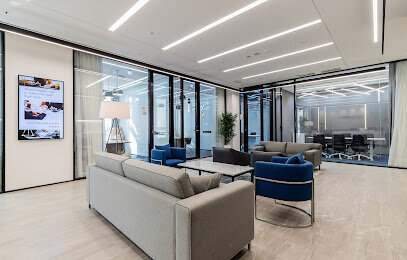Best International Lawyers in Seoul
Share your needs with us, get contacted by law firms.
Free. Takes 2 min.
List of the best lawyers in Seoul, South Korea
About International Law in Seoul, South Korea
International law in Seoul, South Korea refers to the legal principles and regulations that govern relations between countries and individuals from different nations within the city. It encompasses various areas such as international trade, investment, immigration, intellectual property, and human rights. Given the diverse international community in Seoul, it is crucial to understand the local laws and seek proper legal advice to navigate through any international legal matters.
Why You May Need a Lawyer
There are several situations in which you may require the assistance of a lawyer specializing in international law. Some common scenarios include:
- Negotiating and drafting international business contracts
- Resolving disputes related to international trade or investments
- Immigration concerns such as obtaining visas or work permits
- Protecting intellectual property rights within international markets
- Seeking legal remedies for human rights violations or cross-border issues
Local Laws Overview
When dealing with international law matters in Seoul, South Korea, it is important to be aware of the following key aspects of local laws:
- Immigration: South Korea has specific visa categories and requirements for individuals who wish to work, study, or reside in the country. It is crucial to understand the immigration laws and regulations to ensure compliance.
- International Trade: South Korea has bilateral trade agreements with many countries, and understanding the local regulations and customs requirements is essential for businesses engaged in international trade.
- Intellectual Property: Protecting intellectual property rights is crucial. South Korea has laws in place to safeguard patents, trademarks, copyrights, and trade secrets. Familiarizing yourself with these laws is vital for national and international businesses.
- Dispute Resolution: In the event of cross-border disputes, knowing the local laws and available mechanisms for alternative dispute resolution or litigation is important for achieving a fair resolution.
Frequently Asked Questions
1. Can I seek legal advice on international matters if I am not a citizen of South Korea?
Yes, you can seek legal advice regardless of your citizenship. It is recommended to consult with a lawyer specializing in international law who is familiar with the local legal system in Seoul, South Korea.
2. How do I find a lawyer specializing in international law in Seoul?
You can start by researching law firms or legal organizations in Seoul that have expertise in international law. Online legal directories and professional networks can also provide valuable information. It is important to choose an experienced lawyer who can understand your specific needs.
3. What should I consider when negotiating an international business contract?
When negotiating an international business contract, it is important to consider factors such as the applicable laws, jurisdiction, dispute resolution mechanisms, payment terms, confidentiality, and intellectual property rights. Seeking legal advice can help ensure that your interests are protected and the contract is legally enforceable.
4. How long does it usually take to obtain a work permit in South Korea?
The processing time for a work permit can vary based on various factors such as the type of visa, the completeness of the application, and the workload of the immigration authorities. It is advisable to apply well in advance and consult with an immigration lawyer to ensure a smooth process.
5. What steps should I take if I believe my human rights have been violated while in Seoul?
If you believe your human rights have been violated while in Seoul, it is important to gather evidence and document the details of the incident. You should report the incident to the appropriate local authorities or human rights organizations. Seeking legal advice is recommended to understand your options and pursue any legal remedies available.
Additional Resources
Here are some resources, governmental bodies, and organizations related to international law that can be helpful for someone in need of legal advice:
- Seoul Global Center: Provides information and assistance to foreign residents in Seoul, including legal consultations related to international issues.
- Korea Immigration Service: Offers guidance on immigration procedures and regulations for foreigners in South Korea.
- Foreign Embassies and Consulates: Your country's embassy or consulate in Seoul can provide support and information regarding international legal matters.
- International Chamber of Commerce (ICC): The ICC has branches in South Korea and can provide resources and support for businesses engaged in international trade.
Next Steps
If you require legal assistance in international matters in Seoul, South Korea, the next steps are:
- Identify your specific legal issue and gather necessary documents or evidence.
- Research and contact law firms or lawyers specializing in international law in Seoul.
- Consult with the lawyer to discuss your case, potential strategies, and any associated costs.
- Provide all relevant information and follow the guidance provided by your lawyer.
- Act promptly on any legal advice received and keep open communication with your lawyer throughout the process.
Lawzana helps you find the best lawyers and law firms in Seoul through a curated and pre-screened list of qualified legal professionals. Our platform offers rankings and detailed profiles of attorneys and law firms, allowing you to compare based on practice areas, including International, experience, and client feedback.
Each profile includes a description of the firm's areas of practice, client reviews, team members and partners, year of establishment, spoken languages, office locations, contact information, social media presence, and any published articles or resources. Most firms on our platform speak English and are experienced in both local and international legal matters.
Get a quote from top-rated law firms in Seoul, South Korea — quickly, securely, and without unnecessary hassle.
Disclaimer:
The information provided on this page is for general informational purposes only and does not constitute legal advice. While we strive to ensure the accuracy and relevance of the content, legal information may change over time, and interpretations of the law can vary. You should always consult with a qualified legal professional for advice specific to your situation.
We disclaim all liability for actions taken or not taken based on the content of this page. If you believe any information is incorrect or outdated, please contact us, and we will review and update it where appropriate.

















